Teddy and I had the honor of visiting the Urban Farming Institute in Mattapan, Massachusetts, where we spoke to Sabrina Pilet-Jones about the vital impact of Urban Farming on community building and food access in the Boston area. Here is what we learned.

Q: Introduce yourself!
A: “I've been doing this since about 2017, when I started in this program as a trainee. I had absolutely no green thumb or anything, as I grew up in the city. My background was in youth programming. I started at the Food Project, getting to see how they connected youth and food and food access. But I wanted to learn more about how to actually grow the food. So that's how I came here, and it's been an interesting journey.”
Q: Why are you so passionate about Urban Farming?
A: “Throughout my life, I thought I would end up being so many other things like a social worker, or a therapist, or an artist. I never thought I would end up here as an Urban Farmer ever in my life. But the interesting thing is that this farm is a hub for all of those things. I find out that I'm still able to dabble in social work, in different forms of therapeutic practices, because now I'm involved in green therapy here. Yes, the number one mission of Urban Farming is creating food accessibility, but this place is becoming a really layered oasis for various forms of healing and connection. That's what I really love about [Urban Farming] the most. You get to wear many hats. Obviously, yes, I’m growing food, but it's also about teaching children about farming when they come, raising up the growers for the next generation, the next stewards of the land and inspiring the people to push these missions in our communities.”
Q: Why is fresh food access important in Mattapan?
A: “It's important here because although we may not have a food desert, where you know, we have grocery stores, but what my teacher before called it was a ‘Food Mirage,’ where it looks like there is food but there's really not because the quality of it is disgusting, low grade, and the brands aren’t quality. It's just junk on the shelves really, right? We're not really getting actually good food. So that's what the goal of Urban Farming is, so we're not forcing people to have to go to New Hampshire or all the way out to the suburbs to find this kind of organic experience. That's what I really find is important about doing this work.”
Q: Can you define green therapy for us?
A: “Green therapy is just creating access for people who normally wouldn't have access to green space. If you notice around here, and maybe not even just in this neighborhood, but throughout Dorchester, Roxbury, and Mattapan, a lot of people might not have access to backyards. So being able to come here, you kind of get access to nature in a way you may be yearning for. Green therapy is just as simple as being able to see flowers, being able to see butterflies, being able to take your shoes off and sit in the grass.”
“You know, obviously it can get deeper to where you're actually holding therapeutic sessions in green spaces. But it can be just as simple, where you don't need a license or anything where you could just invite people in who normally would not step foot in places like this. The herbs that we grow also offer aromatherapy, and the flowers, which let you take a moment to rest your eyes on beauty. All of those experiences are therapeutic. And I think regardless of the neighborhood, just for us city folks and urbanites, it's really important to remind ourselves of those connections because we get so busy in the nine-to-five and the hustle and bustle. Most of us barely ever have time to touch a garden or stop and smell the roses. So for me, that's what green therapy is. It is really about being able to encourage young people, and for me, especially black and brown people, back towards nature and towards the land because we've kind of been ripped from that due to generational trauma.”
Q: What are some impacts of Urban Farming locally?
A: “Everybody here has a different kind of missions and foundations that are like you know, what drives them. For me, I'm trying to push towards the city and to others that [green spaces] are just as important. Yes, food access, always, of course, is the number one thing that we want to, you know, soothe and support. But also just allowing our children to run around and in a lot full of flowers is just as important because our kids need that access too. When you're doing this work, you'll see people who come in and might just have come in to buy vegetables, or they might have come to purchase their seedlings, but then, you know, we encourage them to hang around and stay. Then you'll start to listen to them say ‘wow, this is so nice.’
‘I never knew this was here.’
‘I need to get outside more.’
‘I need to stay outside of my office more.’
You know, you just start to hear how the people really receive it.”
Q: Could you explain what Urban Farming is and how it differs from rural farming?
A: “So the most obvious difference is the size. We obviously don't have as much acreage as a lot of these larger scale rural farms. They have 300 acres, 90 acres, and we're pushing out what we have between a quarter acre to one acre. So that's one of the main differences is like we don't, and we never will have as much space. We're often really more intentional about what we grow. We also have more of a targeted community that we're serving versus like in a rural farm, you will want to have 90 acres of mono-cropping potatoes, you know, and they're just trying to get that out to the entire food chain because they're in a bigger position that we are where we are just trying to feed Mattapan and Dorchester. We may use different growing techniques like intensive growing because we don't have the same amount of space. We're trying to get as much food as we can out of this small lot. So you might see, we'll have okra grown here and beans grown on the bottom and something maybe in between so we're really taking advantage of all of the space to produce as much yield as possible.”
“Sometimes I feel like rural farmers are often tucked away. And sometimes, as you see through the pandemic, a lot of them are having issues getting rid of their crops because they have a lack of community connection compared to our farm. We're at the forefront and in the thick of it with the people. We're not tucked away. Everybody can see us. Everybody can come here. Everybody can ask us questions.”

Q: How do you think this urban farm has directly impacted the local community?
A: “Urban Farming has impacted the community in many different ways because Urban Farms offer so many different services. For example, just to use myself as an example, I started in 2017 with no green thumb or anything. I was looking for a real deep shift in career. You know, it's not always easy to make a career shift at that age, and while being a mom, but this space has provided not only a job for myself, but for my fiance over the last five years.”
“As an organization, this Urban Farm is about truly creating an impact in people's lives versus some organizations that are, you know, so numbers driven. We really truly care about our community here. We don't turn anyone away. If you don't have money, you know, we'll figure out how to feed you. We also have hot meal programs. Like I said, there's social work happening here, too. There's hunger issues being met here. It's not just about growing, it's almost like the farm is the foundation for so many other ways of support. People know that if they are just having a bad day, they can just come here and sit. We'll give you some mint to smell and we'll let you be. It's beyond just feeding people. This place supports people also in allowing them to grow into who they want to be. The farm is a platform for various things, you know, with food and nutrition being at the forefront. Yes, I know we feed people every day. I know we are changing people's lives through nutrition. We have an elderly program which a wonderful elder leads and we're watching people come to that to finally take care of their diabetes. We're watching elderly people who didn't have friends come out of the house to make friends right here. So it's beyond food. This place changes lives in so many ways.”
Q: Is there anything else you want to say?
A: “I would just say, getting to work with young people is my passion and my joy. I want that to keep happening. I feel like that is definitely a part of the major part of the mission here too is to continue to inspire future growers and to continue to inspire young people.”
< Back
Teddy and I had the honor of visiting the Urban Farming Institute in Mattapan, Massachusetts, where we spoke to Sabrina Pilet-Jones about the vital impact of Urban Farming on community building and food access in the Boston area. Here is what we learned.

Q: Introduce yourself!
A: “I've been doing this since about 2017, when I started in this program as a trainee. I had absolutely no green thumb or anything, as I grew up in the city. My background was in youth programming. I started at the Food Project, getting to see how they connected youth and food and food access. But I wanted to learn more about how to actually grow the food. So that's how I came here, and it's been an interesting journey.”
Q: Why are you so passionate about Urban Farming?
A: “Throughout my life, I thought I would end up being so many other things like a social worker, or a therapist, or an artist. I never thought I would end up here as an Urban Farmer ever in my life. But the interesting thing is that this farm is a hub for all of those things. I find out that I'm still able to dabble in social work, in different forms of therapeutic practices, because now I'm involved in green therapy here. Yes, the number one mission of Urban Farming is creating food accessibility, but this place is becoming a really layered oasis for various forms of healing and connection. That's what I really love about [Urban Farming] the most. You get to wear many hats. Obviously, yes, I’m growing food, but it's also about teaching children about farming when they come, raising up the growers for the next generation, the next stewards of the land and inspiring the people to push these missions in our communities.”
Q: Why is fresh food access important in Mattapan?
A: “It's important here because although we may not have a food desert, where you know, we have grocery stores, but what my teacher before called it was a ‘Food Mirage,’ where it looks like there is food but there's really not because the quality of it is disgusting, low grade, and the brands aren’t quality. It's just junk on the shelves really, right? We're not really getting actually good food. So that's what the goal of Urban Farming is, so we're not forcing people to have to go to New Hampshire or all the way out to the suburbs to find this kind of organic experience. That's what I really find is important about doing this work.”
Q: Can you define green therapy for us?
A: “Green therapy is just creating access for people who normally wouldn't have access to green space. If you notice around here, and maybe not even just in this neighborhood, but throughout Dorchester, Roxbury, and Mattapan, a lot of people might not have access to backyards. So being able to come here, you kind of get access to nature in a way you may be yearning for. Green therapy is just as simple as being able to see flowers, being able to see butterflies, being able to take your shoes off and sit in the grass.”
“You know, obviously it can get deeper to where you're actually holding therapeutic sessions in green spaces. But it can be just as simple, where you don't need a license or anything where you could just invite people in who normally would not step foot in places like this. The herbs that we grow also offer aromatherapy, and the flowers, which let you take a moment to rest your eyes on beauty. All of those experiences are therapeutic. And I think regardless of the neighborhood, just for us city folks and urbanites, it's really important to remind ourselves of those connections because we get so busy in the nine-to-five and the hustle and bustle. Most of us barely ever have time to touch a garden or stop and smell the roses. So for me, that's what green therapy is. It is really about being able to encourage young people, and for me, especially black and brown people, back towards nature and towards the land because we've kind of been ripped from that due to generational trauma.”
Q: What are some impacts of Urban Farming locally?
A: “Everybody here has a different kind of missions and foundations that are like you know, what drives them. For me, I'm trying to push towards the city and to others that [green spaces] are just as important. Yes, food access, always, of course, is the number one thing that we want to, you know, soothe and support. But also just allowing our children to run around and in a lot full of flowers is just as important because our kids need that access too. When you're doing this work, you'll see people who come in and might just have come in to buy vegetables, or they might have come to purchase their seedlings, but then, you know, we encourage them to hang around and stay. Then you'll start to listen to them say ‘wow, this is so nice.’
‘I never knew this was here.’
‘I need to get outside more.’
‘I need to stay outside of my office more.’
You know, you just start to hear how the people really receive it.”
Q: Could you explain what Urban Farming is and how it differs from rural farming?
A: “So the most obvious difference is the size. We obviously don't have as much acreage as a lot of these larger scale rural farms. They have 300 acres, 90 acres, and we're pushing out what we have between a quarter acre to one acre. So that's one of the main differences is like we don't, and we never will have as much space. We're often really more intentional about what we grow. We also have more of a targeted community that we're serving versus like in a rural farm, you will want to have 90 acres of mono-cropping potatoes, you know, and they're just trying to get that out to the entire food chain because they're in a bigger position that we are where we are just trying to feed Mattapan and Dorchester. We may use different growing techniques like intensive growing because we don't have the same amount of space. We're trying to get as much food as we can out of this small lot. So you might see, we'll have okra grown here and beans grown on the bottom and something maybe in between so we're really taking advantage of all of the space to produce as much yield as possible.”
“Sometimes I feel like rural farmers are often tucked away. And sometimes, as you see through the pandemic, a lot of them are having issues getting rid of their crops because they have a lack of community connection compared to our farm. We're at the forefront and in the thick of it with the people. We're not tucked away. Everybody can see us. Everybody can come here. Everybody can ask us questions.”

Q: How do you think this urban farm has directly impacted the local community?
A: “Urban Farming has impacted the community in many different ways because Urban Farms offer so many different services. For example, just to use myself as an example, I started in 2017 with no green thumb or anything. I was looking for a real deep shift in career. You know, it's not always easy to make a career shift at that age, and while being a mom, but this space has provided not only a job for myself, but for my fiance over the last five years.”
“As an organization, this Urban Farm is about truly creating an impact in people's lives versus some organizations that are, you know, so numbers driven. We really truly care about our community here. We don't turn anyone away. If you don't have money, you know, we'll figure out how to feed you. We also have hot meal programs. Like I said, there's social work happening here, too. There's hunger issues being met here. It's not just about growing, it's almost like the farm is the foundation for so many other ways of support. People know that if they are just having a bad day, they can just come here and sit. We'll give you some mint to smell and we'll let you be. It's beyond just feeding people. This place supports people also in allowing them to grow into who they want to be. The farm is a platform for various things, you know, with food and nutrition being at the forefront. Yes, I know we feed people every day. I know we are changing people's lives through nutrition. We have an elderly program which a wonderful elder leads and we're watching people come to that to finally take care of their diabetes. We're watching elderly people who didn't have friends come out of the house to make friends right here. So it's beyond food. This place changes lives in so many ways.”
Q: Is there anything else you want to say?
A: “I would just say, getting to work with young people is my passion and my joy. I want that to keep happening. I feel like that is definitely a part of the major part of the mission here too is to continue to inspire future growers and to continue to inspire young people.”
The Importance of Urban Farming: Providing More than just Food Access
Mattapan, Massachusetts
Teddy and I had the honor of visiting the Urban Farming Institute in Mattapan, Massachusetts, where we spoke to Sabrina Pilet-Jones about the vital impact of Urban Farming on community building and food access in the Boston area. Here is what we learned.

Q: Introduce yourself!
A: “I've been doing this since about 2017, when I started in this program as a trainee. I had absolutely no green thumb or anything, as I grew up in the city. My background was in youth programming. I started at the Food Project, getting to see how they connected youth and food and food access. But I wanted to learn more about how to actually grow the food. So that's how I came here, and it's been an interesting journey.”
Q: Why are you so passionate about Urban Farming?
A: “Throughout my life, I thought I would end up being so many other things like a social worker, or a therapist, or an artist. I never thought I would end up here as an Urban Farmer ever in my life. But the interesting thing is that this farm is a hub for all of those things. I find out that I'm still able to dabble in social work, in different forms of therapeutic practices, because now I'm involved in green therapy here. Yes, the number one mission of Urban Farming is creating food accessibility, but this place is becoming a really layered oasis for various forms of healing and connection. That's what I really love about [Urban Farming] the most. You get to wear many hats. Obviously, yes, I’m growing food, but it's also about teaching children about farming when they come, raising up the growers for the next generation, the next stewards of the land and inspiring the people to push these missions in our communities.”
Q: Why is fresh food access important in Mattapan?
A: “It's important here because although we may not have a food desert, where you know, we have grocery stores, but what my teacher before called it was a ‘Food Mirage,’ where it looks like there is food but there's really not because the quality of it is disgusting, low grade, and the brands aren’t quality. It's just junk on the shelves really, right? We're not really getting actually good food. So that's what the goal of Urban Farming is, so we're not forcing people to have to go to New Hampshire or all the way out to the suburbs to find this kind of organic experience. That's what I really find is important about doing this work.”
Q: Can you define green therapy for us?
A: “Green therapy is just creating access for people who normally wouldn't have access to green space. If you notice around here, and maybe not even just in this neighborhood, but throughout Dorchester, Roxbury, and Mattapan, a lot of people might not have access to backyards. So being able to come here, you kind of get access to nature in a way you may be yearning for. Green therapy is just as simple as being able to see flowers, being able to see butterflies, being able to take your shoes off and sit in the grass.”
“You know, obviously it can get deeper to where you're actually holding therapeutic sessions in green spaces. But it can be just as simple, where you don't need a license or anything where you could just invite people in who normally would not step foot in places like this. The herbs that we grow also offer aromatherapy, and the flowers, which let you take a moment to rest your eyes on beauty. All of those experiences are therapeutic. And I think regardless of the neighborhood, just for us city folks and urbanites, it's really important to remind ourselves of those connections because we get so busy in the nine-to-five and the hustle and bustle. Most of us barely ever have time to touch a garden or stop and smell the roses. So for me, that's what green therapy is. It is really about being able to encourage young people, and for me, especially black and brown people, back towards nature and towards the land because we've kind of been ripped from that due to generational trauma.”
Q: What are some impacts of Urban Farming locally?
A: “Everybody here has a different kind of missions and foundations that are like you know, what drives them. For me, I'm trying to push towards the city and to others that [green spaces] are just as important. Yes, food access, always, of course, is the number one thing that we want to, you know, soothe and support. But also just allowing our children to run around and in a lot full of flowers is just as important because our kids need that access too. When you're doing this work, you'll see people who come in and might just have come in to buy vegetables, or they might have come to purchase their seedlings, but then, you know, we encourage them to hang around and stay. Then you'll start to listen to them say ‘wow, this is so nice.’
‘I never knew this was here.’
‘I need to get outside more.’
‘I need to stay outside of my office more.’
You know, you just start to hear how the people really receive it.”
Q: Could you explain what Urban Farming is and how it differs from rural farming?
A: “So the most obvious difference is the size. We obviously don't have as much acreage as a lot of these larger scale rural farms. They have 300 acres, 90 acres, and we're pushing out what we have between a quarter acre to one acre. So that's one of the main differences is like we don't, and we never will have as much space. We're often really more intentional about what we grow. We also have more of a targeted community that we're serving versus like in a rural farm, you will want to have 90 acres of mono-cropping potatoes, you know, and they're just trying to get that out to the entire food chain because they're in a bigger position that we are where we are just trying to feed Mattapan and Dorchester. We may use different growing techniques like intensive growing because we don't have the same amount of space. We're trying to get as much food as we can out of this small lot. So you might see, we'll have okra grown here and beans grown on the bottom and something maybe in between so we're really taking advantage of all of the space to produce as much yield as possible.”
“Sometimes I feel like rural farmers are often tucked away. And sometimes, as you see through the pandemic, a lot of them are having issues getting rid of their crops because they have a lack of community connection compared to our farm. We're at the forefront and in the thick of it with the people. We're not tucked away. Everybody can see us. Everybody can come here. Everybody can ask us questions.”

Q: How do you think this urban farm has directly impacted the local community?
A: “Urban Farming has impacted the community in many different ways because Urban Farms offer so many different services. For example, just to use myself as an example, I started in 2017 with no green thumb or anything. I was looking for a real deep shift in career. You know, it's not always easy to make a career shift at that age, and while being a mom, but this space has provided not only a job for myself, but for my fiance over the last five years.”
“As an organization, this Urban Farm is about truly creating an impact in people's lives versus some organizations that are, you know, so numbers driven. We really truly care about our community here. We don't turn anyone away. If you don't have money, you know, we'll figure out how to feed you. We also have hot meal programs. Like I said, there's social work happening here, too. There's hunger issues being met here. It's not just about growing, it's almost like the farm is the foundation for so many other ways of support. People know that if they are just having a bad day, they can just come here and sit. We'll give you some mint to smell and we'll let you be. It's beyond just feeding people. This place supports people also in allowing them to grow into who they want to be. The farm is a platform for various things, you know, with food and nutrition being at the forefront. Yes, I know we feed people every day. I know we are changing people's lives through nutrition. We have an elderly program which a wonderful elder leads and we're watching people come to that to finally take care of their diabetes. We're watching elderly people who didn't have friends come out of the house to make friends right here. So it's beyond food. This place changes lives in so many ways.”
Q: Is there anything else you want to say?
A: “I would just say, getting to work with young people is my passion and my joy. I want that to keep happening. I feel like that is definitely a part of the major part of the mission here too is to continue to inspire future growers and to continue to inspire young people.”
.png)
.jpg)
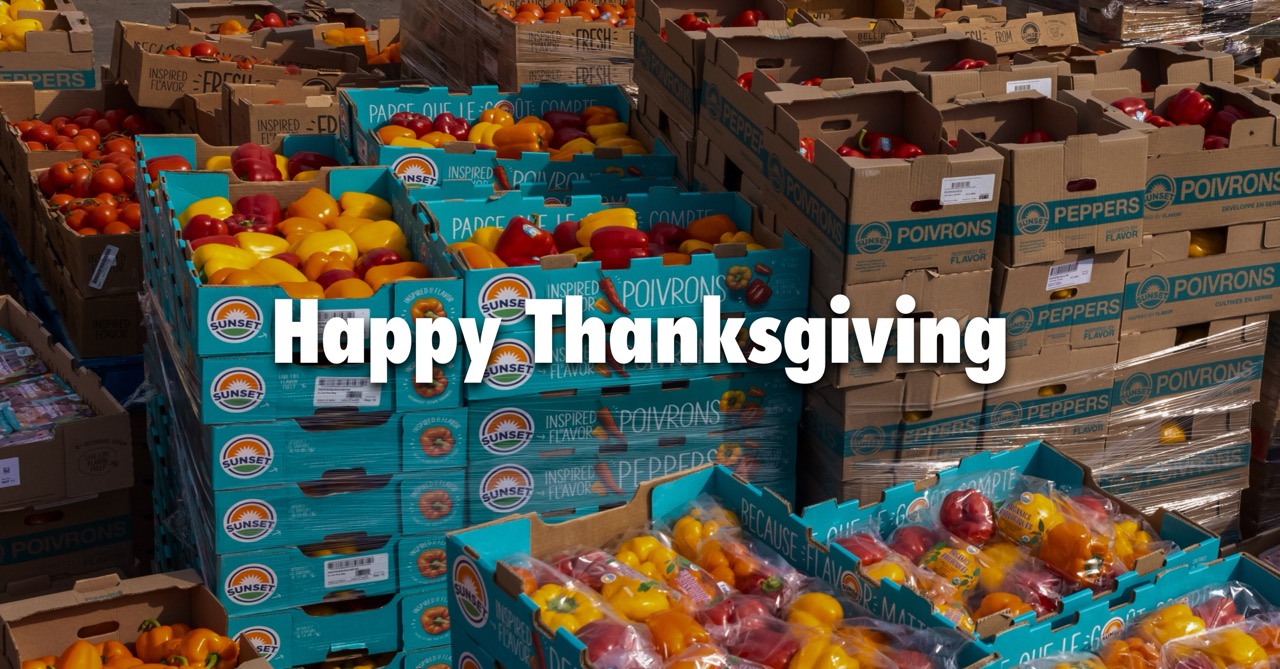
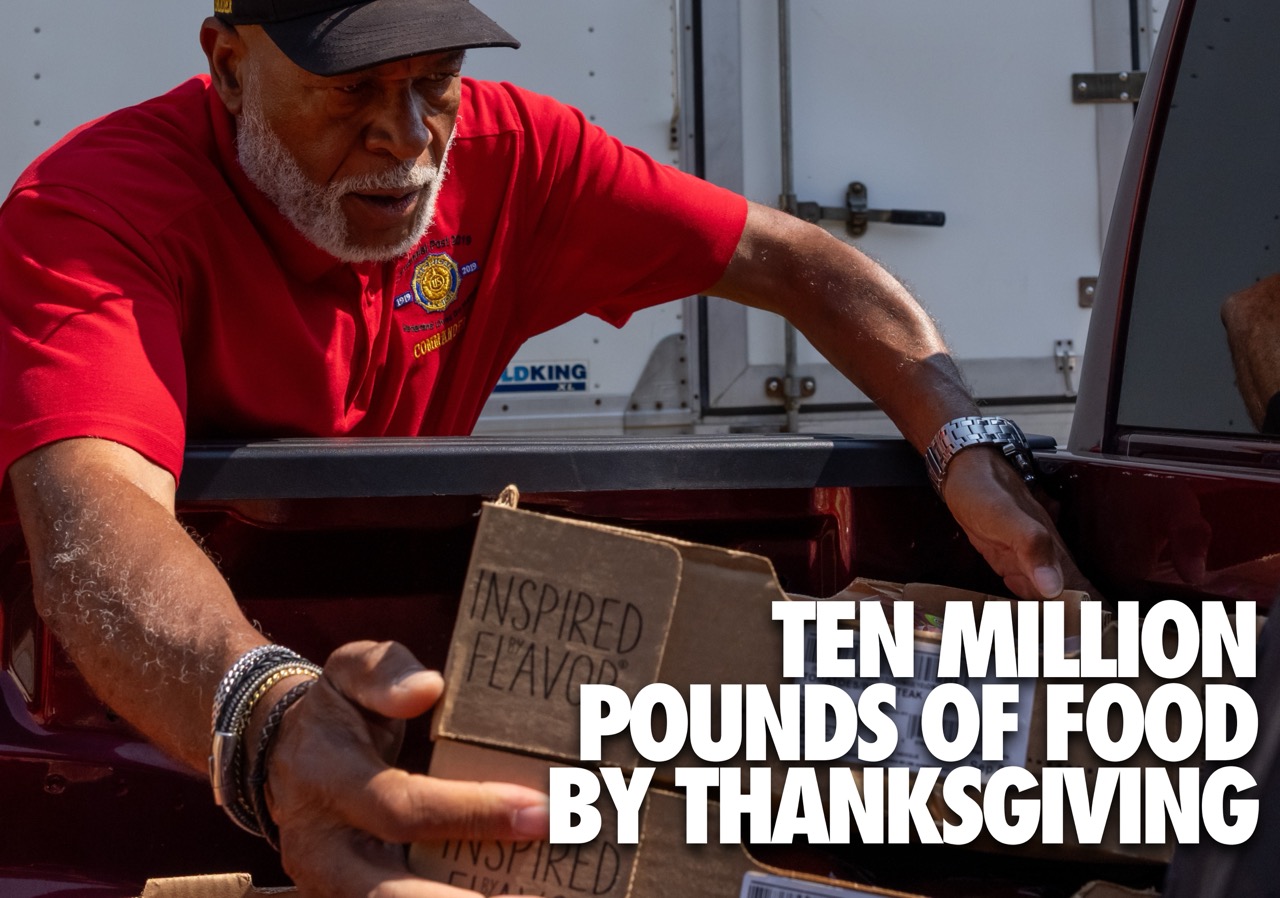
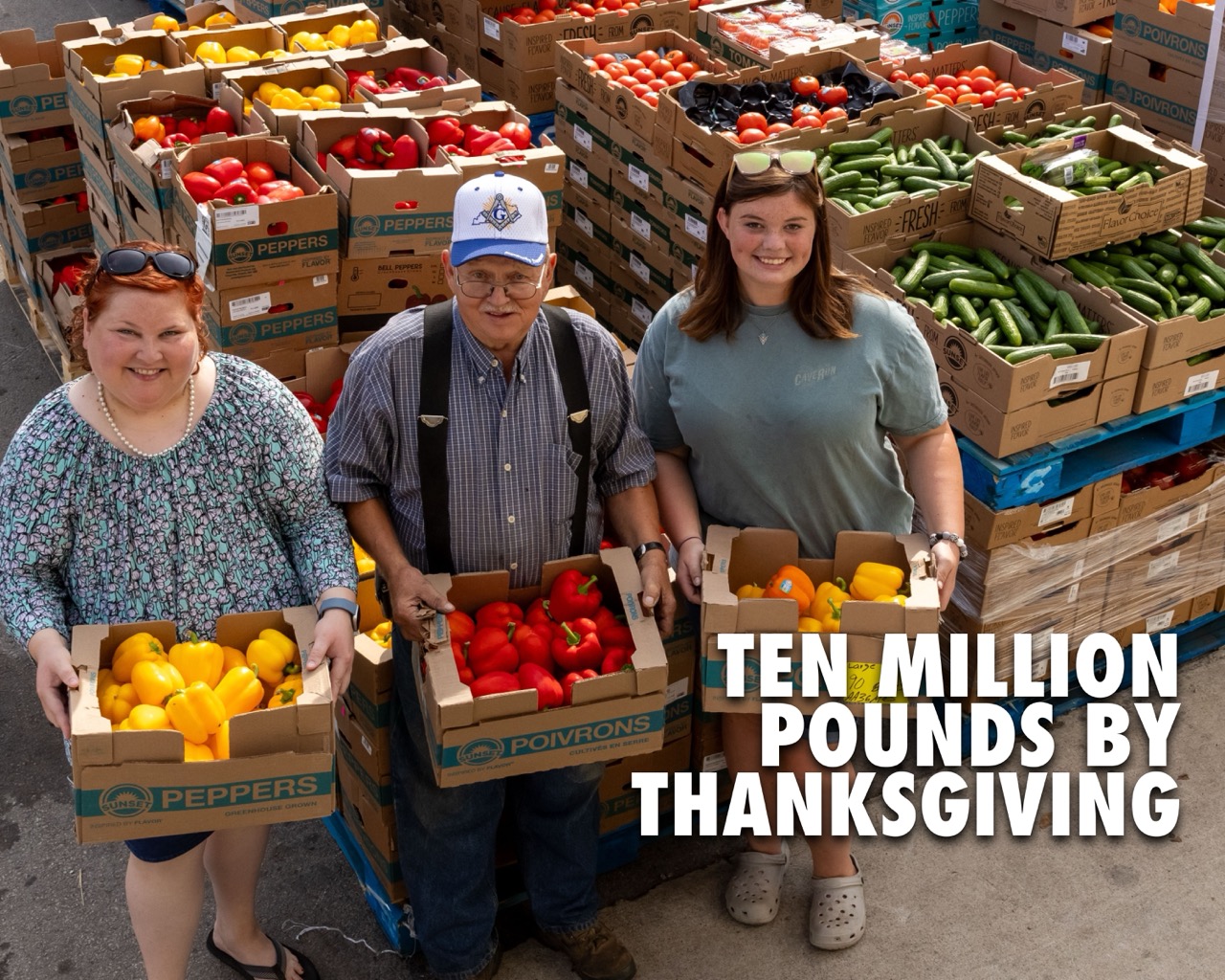
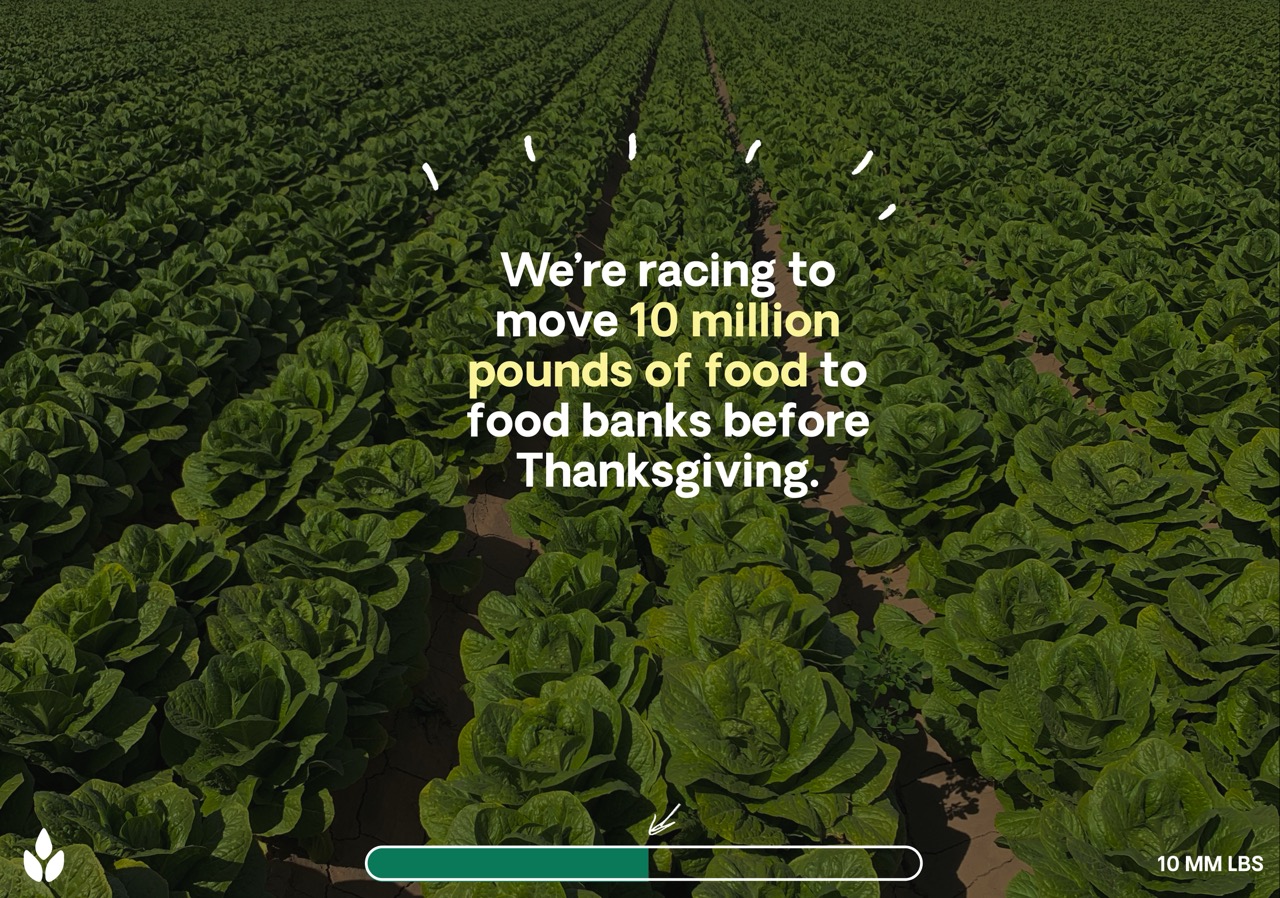
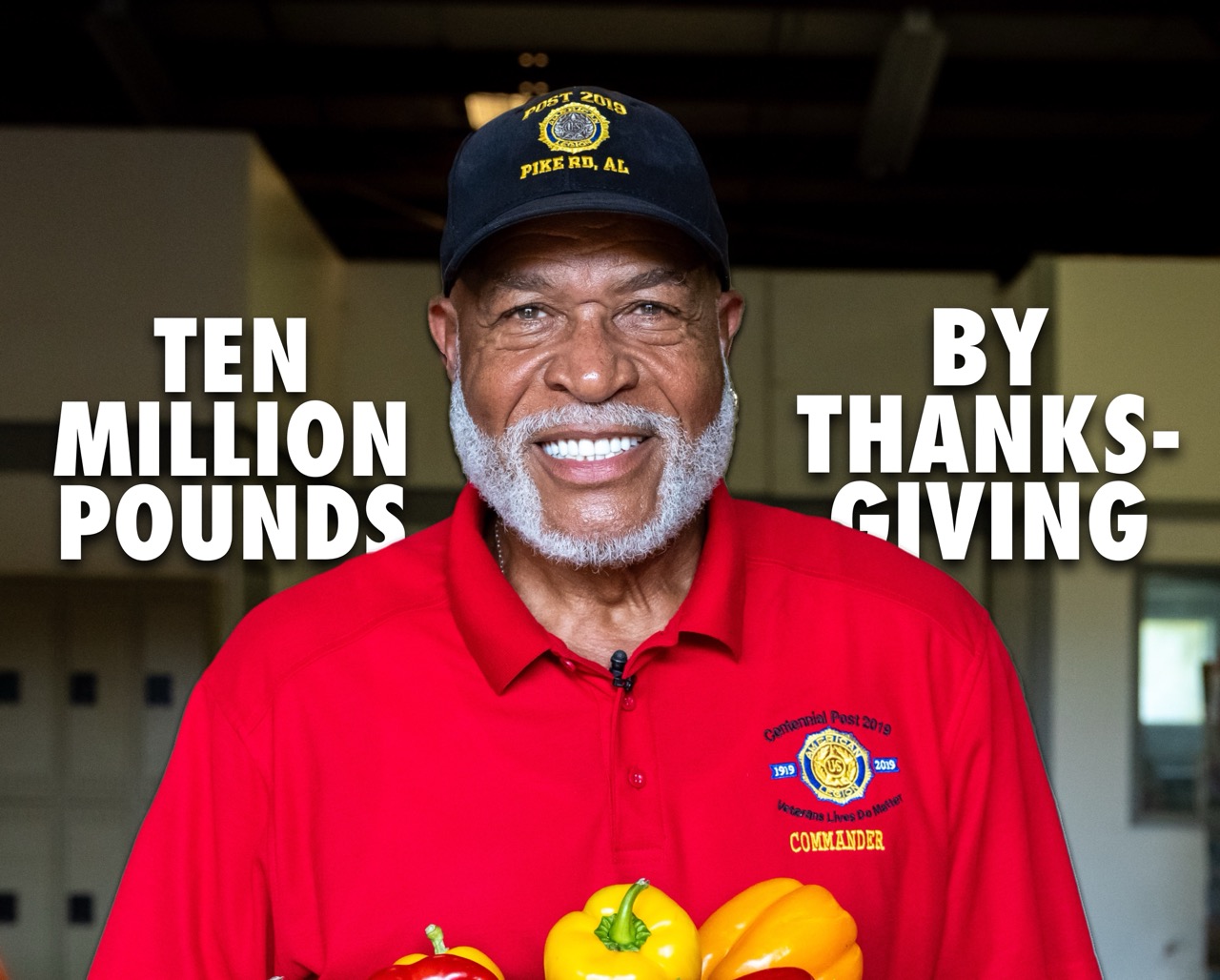
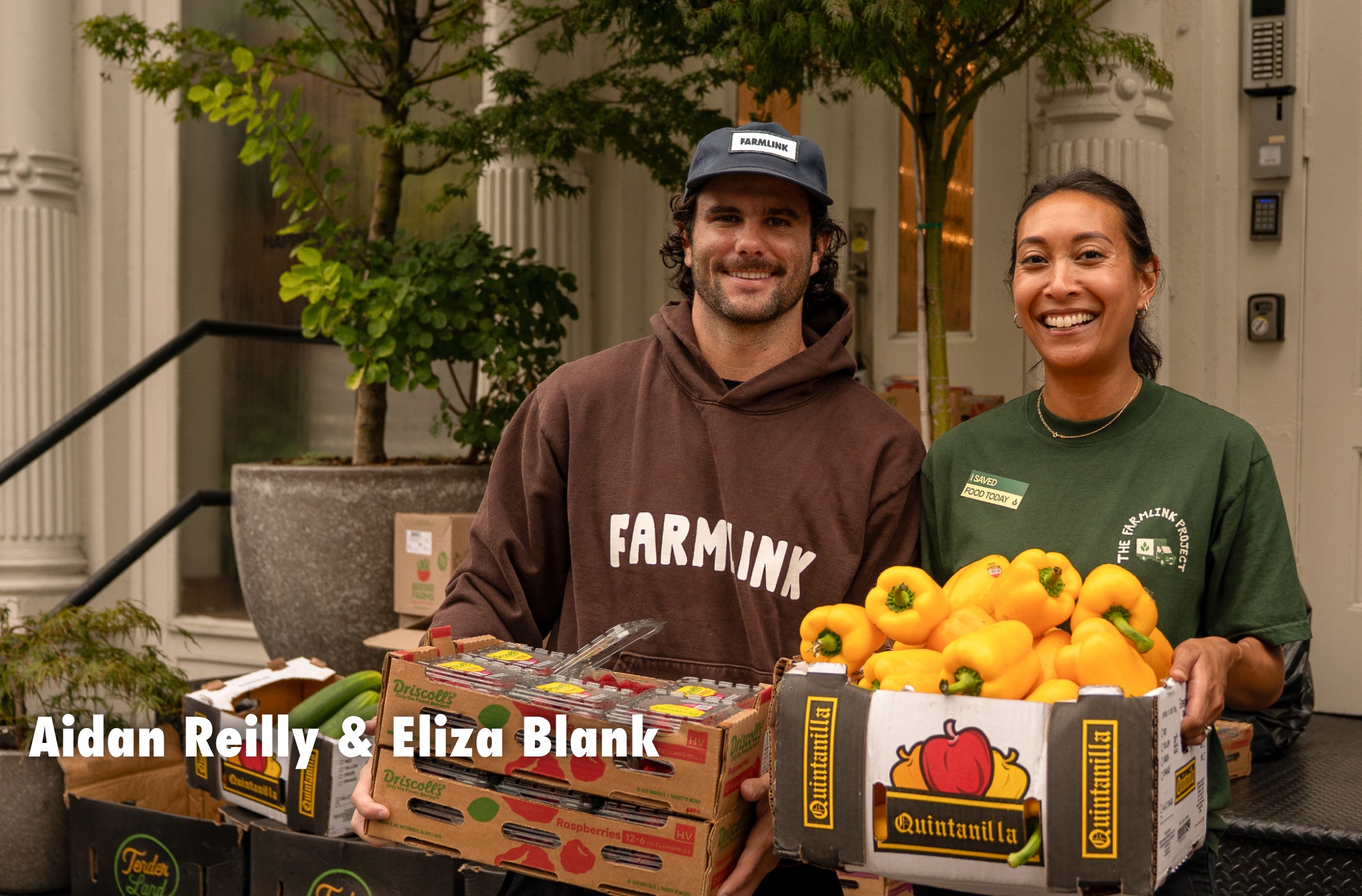
.svg)
.svg)
.svg)